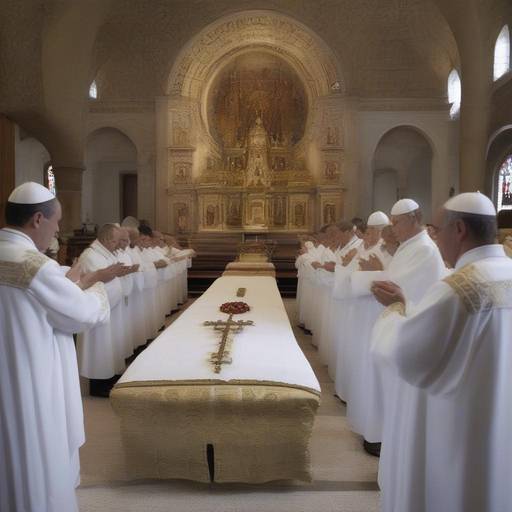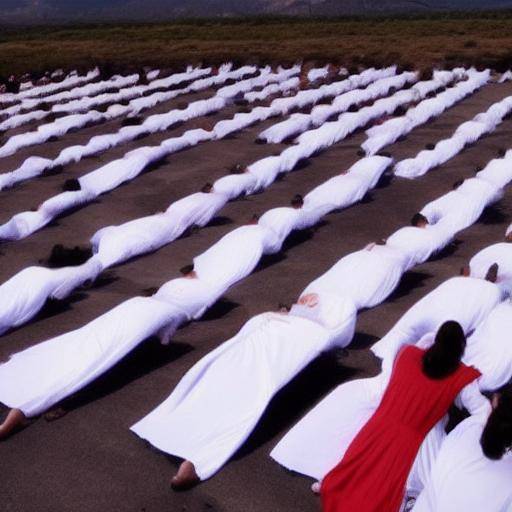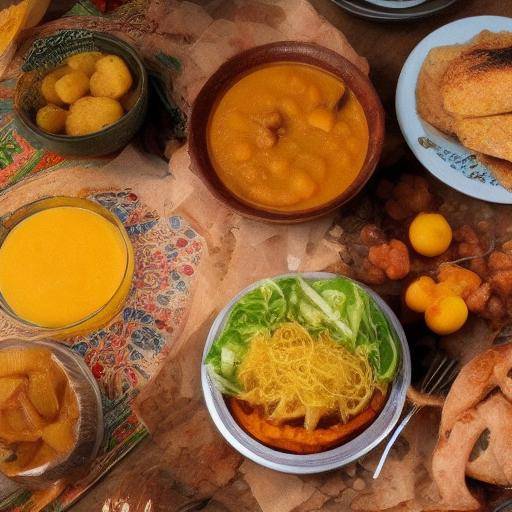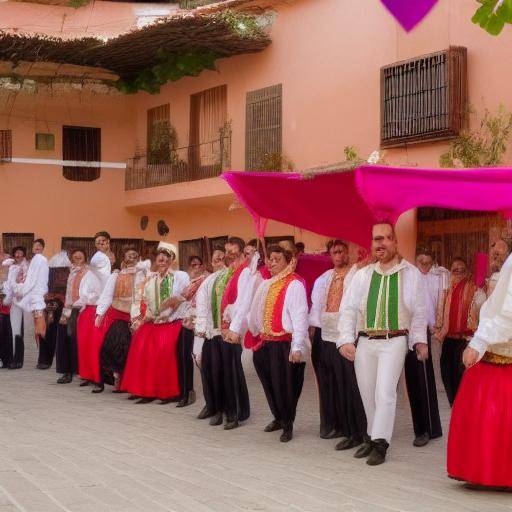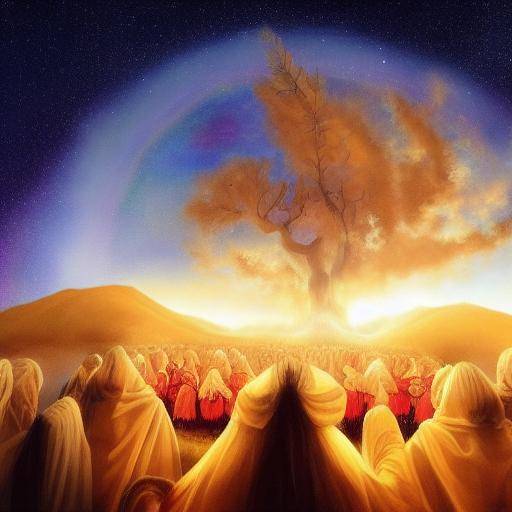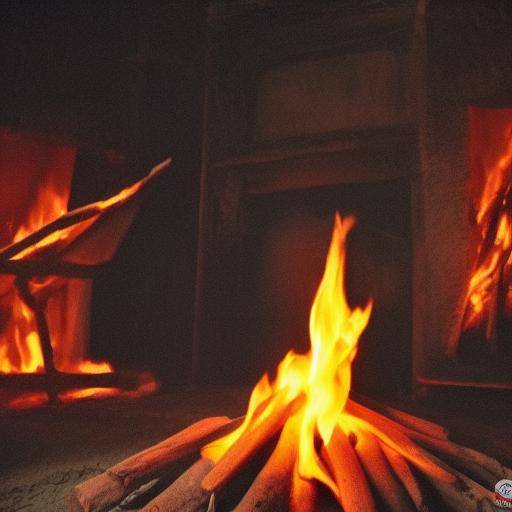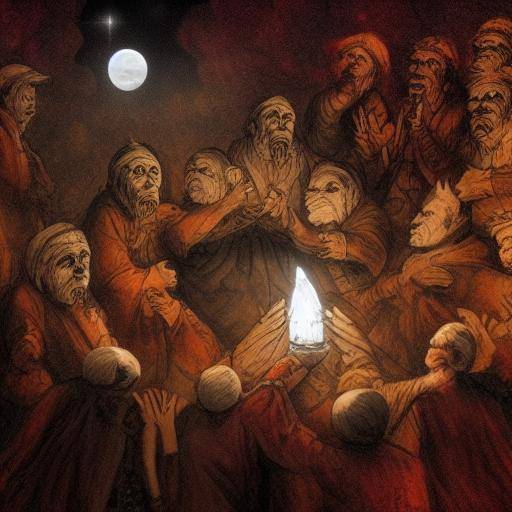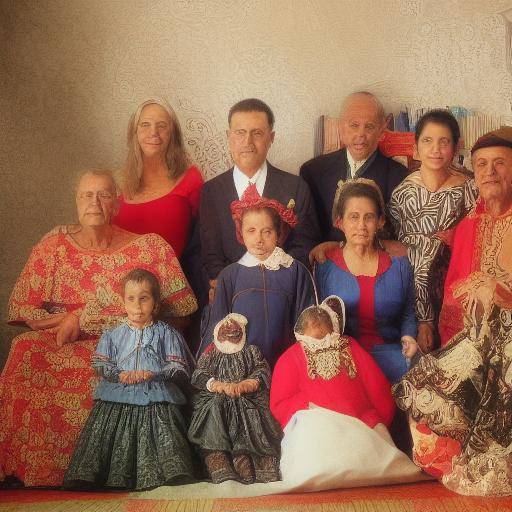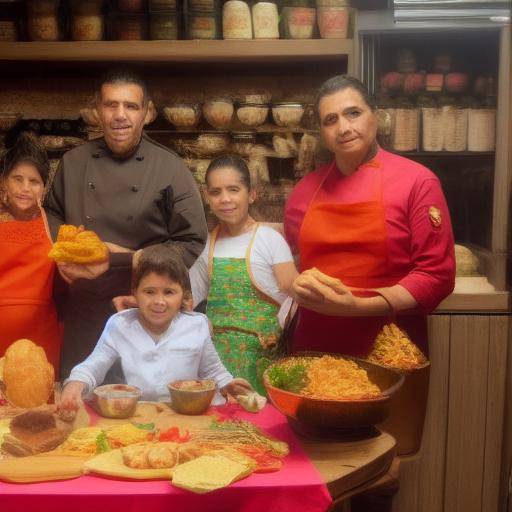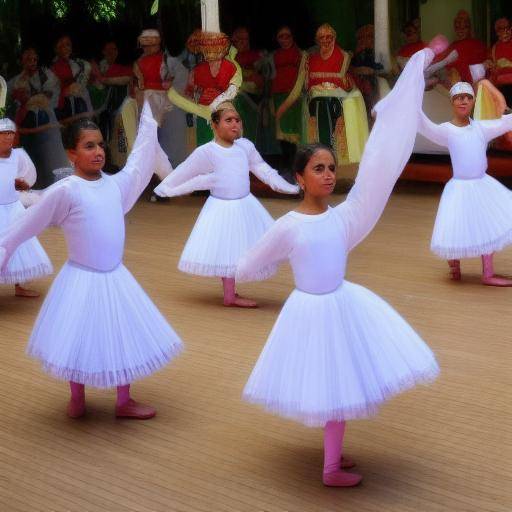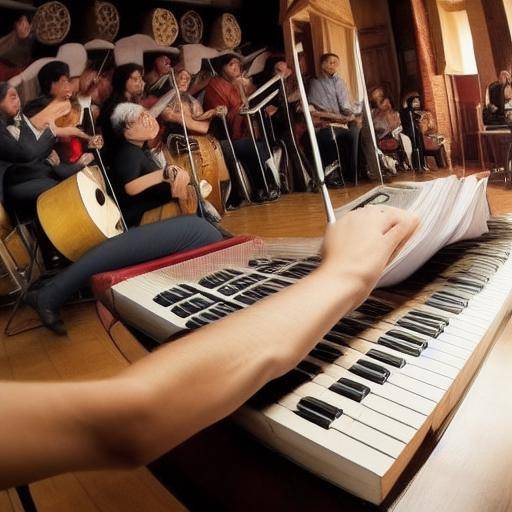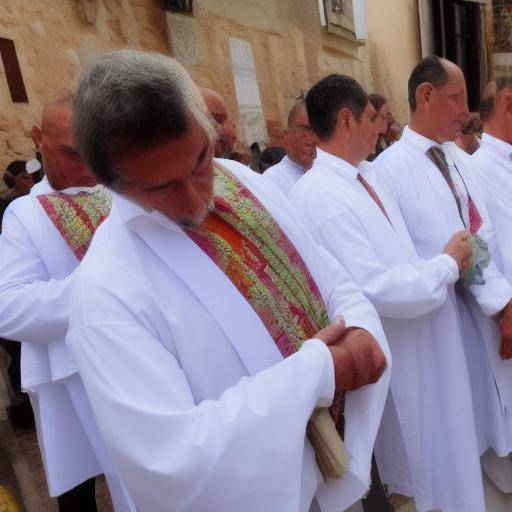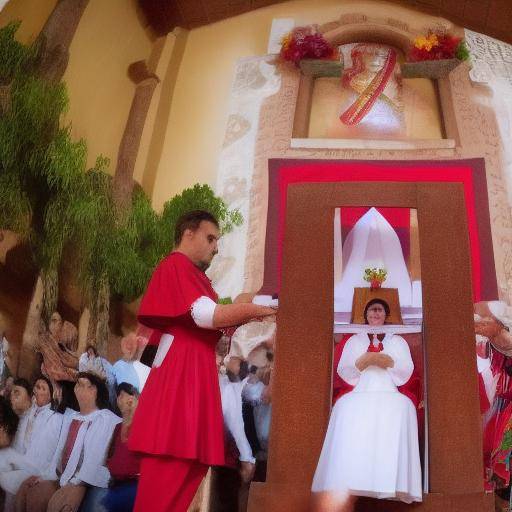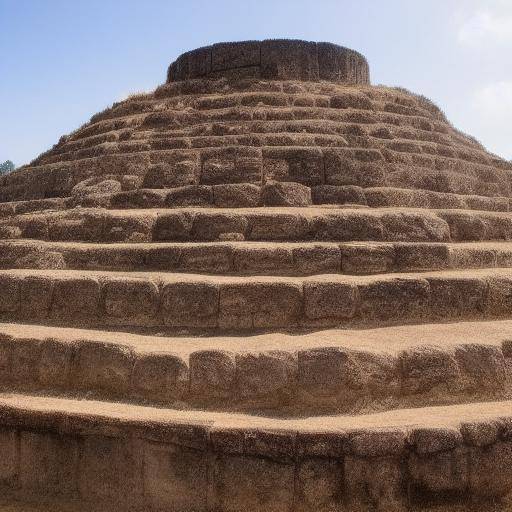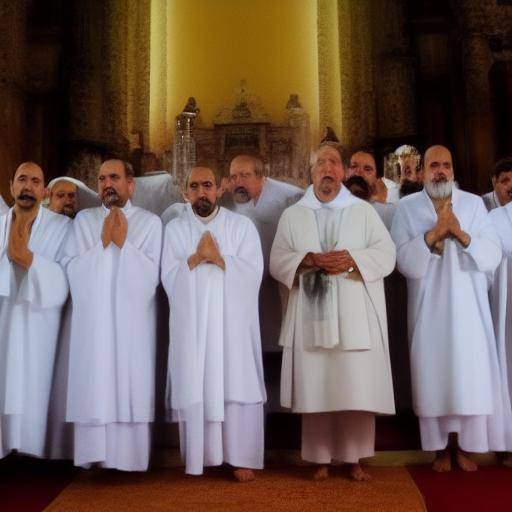
The sacred rituals, since time immemorial, have played a fundamental role in the spiritual and cultural life of various civilizations. Within these rituals, the priests have occupied a central position, acting as mediators between the material and the spiritual world. In this article, we will explore in depth the role of priests in the sacred rituals, their history, their importance, and their relevance in today's society.
Introduction
Sacred rituals have been an integral part of virtually all religious and spiritual traditions throughout history. These rituals include a wide range of practices, such as initiation ceremonies, passage rites, ritual celebrations, and acts of worship. The priests, as sacred figures and spiritual leaders, play an essential role in the planning, preparation and execution of these rituals, which gives them a position of great relevance in the community.
History and Background
The Origen of the Sacred Rituals
The sacred rituals have their roots in ancient civilizations, where they were used to establish and strengthen the relationship between human beings and the divine or supernatural forces in which they believed. The first manifestations of the sacred rituals date back to prehistory, with evidence of ceremonial practices found in cave paintings and archaeological artifacts. Over time, these practices evolved and adapted to different cultures and religions.
The Role of Priests in Antiquity
In ancient civilizations, priests exercised their religious and spiritual authority through the realization of sacred rituals. In cultures such as Egyptian, Greek, Roman and Mesopotamia, priests played a crucial role as mediators between the gods and humanity. Their functions included the interpretation of omens, the realization of sacrifices, the administration of temples and the spiritual guidance of communities.
The Evolution of the Sacred Rituals
Over time, sacred rituals were adapted as societies and religions changed. New rites and ceremonies were developed, and priests continued to play a central role in the preservation and realization of these rituals.
Deep analysis
Sacred rituals not only have a profound spiritual meaning, but have also shown positive psychological, emotional and community effects. These rituals provide a sense of belonging, foster social cohesion, offer comfort in times of difficulty and promote personal introspection. The priests, as facilitators of these rituals, bring their wisdom, understanding and leadership to guide people through these meaningful experiences.
Exhaustive examination
The sacred rituals are not only part of religious life, but also find application in secular contexts. Examples include ceremonial rituals in civic events, protocols in organizations and rites in therapeutic areas. The priests, therefore, play a crucial role both in the spiritual and secular, providing their support, wisdom and guidance in a wide range of contexts.
Comparative analysis
The figure of the priest, his presence and function in the sacred rituals, varies significantly from one religious tradition to another. While in some religions the priest acts as a direct intermediary between the individual and the divine, in others his role may be more linked to teaching, spiritual leadership, or community administration. However, in all these traditions, their presence is fundamental to guarantee the authenticity and effectiveness of the sacred rituals.
Practical Tips and Accessible Recommendations
While sacred rituals are led by priests, it is important that those who participate in them understand their meaning and purpose. Here are some recommendations for those who wish to participate in sacred rituals:
- Pay attention to the instructions of the priest: follow his instructions with respect and attention.
- Keep an attitude of openness and receptivity: sacred rituals often offer profound lessons and experiences.
- Respect the space and time of the ritual: avoid inappropriate distractions or behaviors that may interrupt the experience for other participants.
- He thanked the priest and the other participants at the end of the ritual: gratitude was an important part of the ritual process.
Perceptions of Industry and Expert Reviews
Various experts in anthropology, sociology, theology and other disciplines have studied and analyzed the role of priests in the sacred rituals. His research has revealed the importance of the presence and guidance of priests in the realization of significant rituals, as well as the positive influence that these rituals may have in the lives of people and communities.
Case Studies and Real Life Applications
The sacred rituals and the participation of priests in them can have a profound impact on people's lives. For example, in indigenous communities, sacred rituals are a way of preserving cultural heritage and strengthening collective identity. Similarly, in more contemporary contexts, sacred rituals can serve as a source of comfort and hope for those who practice them, regardless of their religious affiliation.
Future Trends and Predictions
As our understanding of spirituality and religion continues to evolve, sacred rituals and the role of priests are likely to continue to adapt and transform. Emerging trends suggest an opening to non-traditional spiritual practices as well as a further exploration of personal and personalized rituals. The priests, as spiritual guides, will face the challenge of adapting to these new dynamics while continuing to preserve the integrity and purpose of the sacred rituals.
Conclusion
In short, sacred rituals play a fundamental role in the spiritual and cultural life of societies, and priests act as vital mediators in the realization and understanding of these rituals. Their presence remains a source of strength, guidance and comfort for those who participate in sacred rituals. By understanding their role and importance, we can appreciate the wealth and depth of these ancestral practices that continue to impact our lives today.
Frequently asked questions
What qualities should a priest have to perform sacred rituals effectively?
An effective priest in performing sacred rituals must possess qualities such as empathy, understanding, knowledge of the religious or spiritual tradition to which he belongs, leadership skills, and a clear connection with the divine according to his beliefs.
How are priests preparing to lead sacred rituals?
The preparation of a priest to lead sacred rituals usually involves years of theological, spiritual and practical formation. This may include religious studies, ritual practices, spiritual leadership training and supervision by experienced religious leaders and priests.
What is the difference between a sacred ritual and a secular ceremony?
The main difference lies in the spiritual and religious orientation of the sacred rituals, which seek to connect with the divine, transcendent or sacred, while secular ceremonies tend to have a more social or civic purpose, without a specific religious context.
What is the psychological impact of participating in sacred rituals?
Participating in sacred rituals can have a significant impact on people's psychological well-being, providing a sense of belonging, meaning, emotional support and spiritual connection.
How have the sacred rituals evolved over time?
The sacred rituals have evolved in response to social, cultural and religious changes. Some have acquired new forms and meanings, while others have been preserved as cultural relics.
What role do priests play in adapting sacred rituals to contemporary contexts?
The priests play a crucial role in adapting the sacred rituals to modern life, serving as a bridge between the ancestral traditions and the current spiritual needs.
With these FAQs, we hope to have solved some of your doubts about priests and sacred rituals.
In conclusion, the sacred rituals and the role of priests in them have a long history and a profound influence on society. Through their spiritual guidance and leadership, priests continue to play a vital role in the maintenance and evolution of these significant practices.



